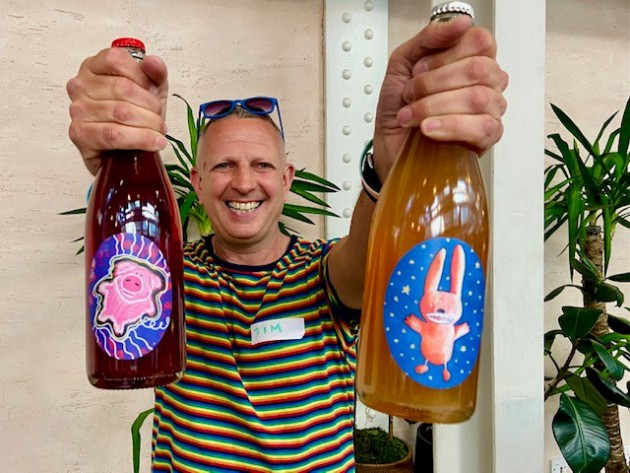
‘Minimal’ approach majors at Deep Down Under
A panoply of minimal intervention styles, from the 100% natural to a range of ‘hands-off’ products, put the spotlight on the very sharpest examples of Australia’s cutting-edge winemaking at Monday’s (22 May) Deep Down Under tasting.
A collaboration of six importers, Graft Wine Company, Indigo Wines, Flint Wines, Liberty Wines, Nekter Wines and ABS Wine Agencies all convened at London’s Wild by Tart for the tasting, which put 29 regions and a total of 157 wines on show.
Walking around the tasting, it became clear just how much the minimal intervention approach has become part of the category’s DNA.
- Read more: Drought – A burning issue for wine
Nekter Wines’ portfolio, for example, is 100% minimal intervention. All of the winemakers farm organically and sustainably, with the focus on natural wines more about function (ecosystem and biodiversity) rather than fashion. A top pick was Geyer Wine Co’s uber-zesty Chenin Blanc 2021, which provided a window into the ‘new Barossa’, stripped-back label and all.
Then, there was the collection from Tim Wildman (Indigo Wines) – a range of fabulously fresh Pet Nats from McLaren Vale and Adelaide Hills.
Fifteen years ago, Wildman’s (pictured) Pet Nats were part of only a smattering of their kind on the Aussie market. Today, there is “one in most regions”, he says.
“The tasting is a forum where new wave ‘natural wines’ rub shoulders with classic icons simply because they represent some of the best of what is being made in Australia today,” adds Nik Darlington, marketing director at the Graft Wine Company.
“There are differing emphases across the various exhibitors, quite deliberately so as to ensure a range of styles. But I think I speak for everyone showing wines in saying minimal intervention winemaking is now the norm at the cutting edge of the Australian wine scene. Moreover, the emphasis on sustainability in the vineyard has never been greater.
“Australia has been especially affected by climatic extremes in recent times and winemakers are acutely conscious of how this affects their ability to produce wines of consistent quality and indeed appropriate yields. [The styles] are simply a reflection of the reality on the ground.”
Australia has certainly come a long way since the days of its first blockbuster wine, (also its most famous), Penfolds Grange. Penfolds top red and white wines – Grange and Yattarna – are both cross-regional blends and play heavily into the idea that wines are made in the winery.
Against the backdrop of an increasingly unpredictable climate however, producers have more recently looked to re-explore historic regions such as the Barossa, while also pushing outwards to new spots, for example, Tasmania, in the hunt for both terroir and cooler climes.
Certainly re-thinking their approach is Pannell Enoteca (Liberty Wines), which has been removing Shiraz from many of its vineyards.
Pannell executive general manager, Tom Grant shared that the company is “looking at varieties that will help us into the future: pulling out Shiraz, Cabernet and Chardonnay – all the things you would expect to find; and putting in things that we think will get us there instead: things like Nero d’Avola, Fiano, Montepulciano, Tempranillo, Touriga Nacional”.
The tasting is now looking to return for its fourth outing in 2024.
With supply chain issues continuing, another plus of the tasting is that all the wines are available to buy “right now”, says Darlington.
“The event is no longer a curiosity. Rather, it is now the forum and indeed shop window...for the best in Australian winemaking.”





